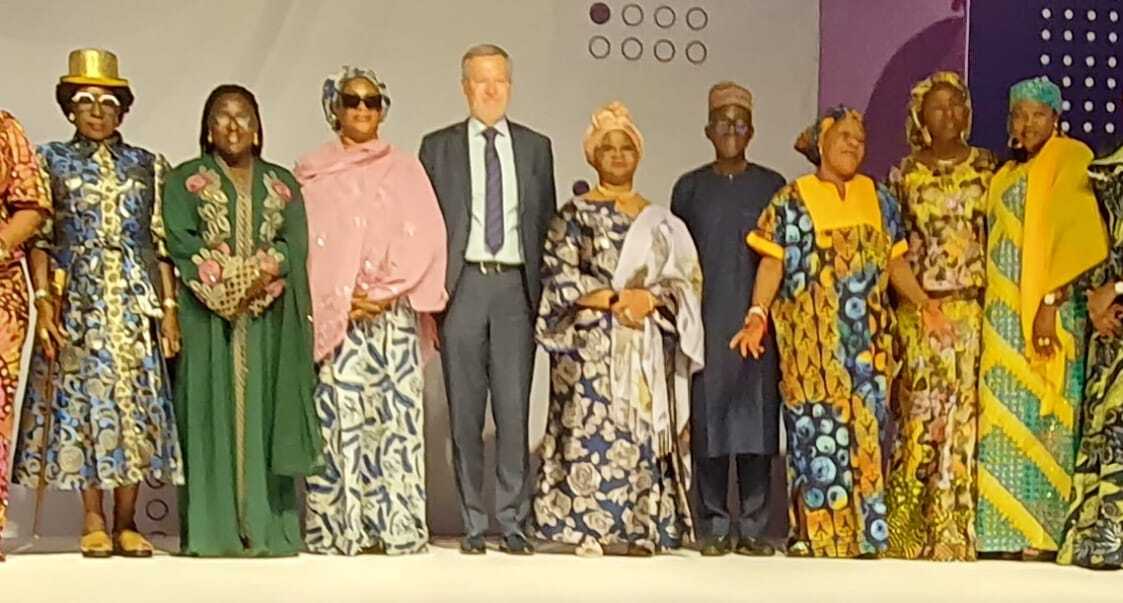The Federal Government, the European Union, International IDEA, and other stakeholders have emphasised the need for the enforcement of laws and policies addressing sexual offences and gender-based violence. They also stressed the importance of protecting vulnerable Nigerians.
This call was made at the 2nd Annual Conference of Commissioners of State Ministries of Women Affairs in Abuja, themed ‘Sub-National Policy and Practice for Enhancing Rights, Protection, and Justice for Women, Children, and Persons with Disabilities.’ The conference was organised by the European Union-funded Rule of Law and Anti-Corruption (RoLAC-Phase II) Programme of International IDEA in collaboration with the Federal Ministry of Women Affairs.
Concerned by the low levels of inclusion for women, children, and persons with disabilities (PWD) in national affairs, stakeholders gathered to strategise on ways to advocate for vulnerable citizens in Nigeria. They noted that achieving gender equality requires transforming social norms and power dynamics that support the political, social, and economic empowerment of the most marginalised, especially women, children, and PWD.
The Minister of Women Affairs, Imaan Sulaiman-Ibrahim, represented by her Senior Special Assistant on Women and Community Engagement, Princess Joan Jummai Idonije, stated that this year’s theme, “Accelerate Action,” is particularly relevant. It emphasises the need for renewed commitment and bold action to tackle gender parity issues.
Sulaiman-Ibrahim reiterated the importance of critically evaluating Nigeria’s policies and governance structures to ensure that interventions lead to tangible outcomes, particularly at the sub-national level where the needs are most urgent.
“We must ensure that every intervention is tracked, evaluated, and reported. Investing in state-level gender data systems will help us measure progress and feed into the national Women’s Empowerment and Protection Dashboard, ensuring accountability and transparency in our collective efforts,” she stressed.
She also appreciated RoLAC and other development partners’ continued support of women, children, and vulnerable groups. She commended State Commissioners for Women’s Affairs for their leadership and dedication to advancing gender equality at the sub-national level.
Danladi Plang, Head of the Rule of Law and Anti-Corruption (RoLAC) Programme, urged state Commissioners to pursue the enactment and implementation of relevant laws for women, children, and PWD. He called on authorities to allocate resources and make investments to ensure the sector thrives beyond political rhetoric.
“The core objectives of the Rule of Law Programme are to increase access to justice for women, children, and persons with disabilities. Since 2017, in collaboration with the European Union, we have been implementing this programme across several states. We’ve supported the creation of legislation such as the Child Protection Law and the VAPP Law in various states,” Plang said.
He further explained that state ministries and commissioners are crucial in influencing policy implementation and serving as catalysts for change within their cabinets.
In an interview at the event, Plang disclosed that the Sexual Assault Referral Centres (SARCs) have assisted over 8,000 survivors. “Last year, we commissioned the NCPWD to ensure office buildings are accessible, and we’ve continued advocating for legislative changes with Commissioners to ensure that vulnerable groups are supported,” he said.
Oluwatoyosi Giwa, Project Manager of the Access to Justice RoLAC Programme, emphasised the conference’s goal to produce action plans that would directly benefit vulnerable citizens.
“By the end of these three days, we hope to develop actionable strategies that Commissioners can implement in their states to improve the lives of women, children, and persons with disabilities,” Giwa said. “Let us speak our truth and share our experiences so we can learn from one another and bring back tangible solutions.”
The European Union Ambassador to Nigeria and ECOWAS, Gautier Mignot, noted that many Nigerian states have enacted laws for women.









